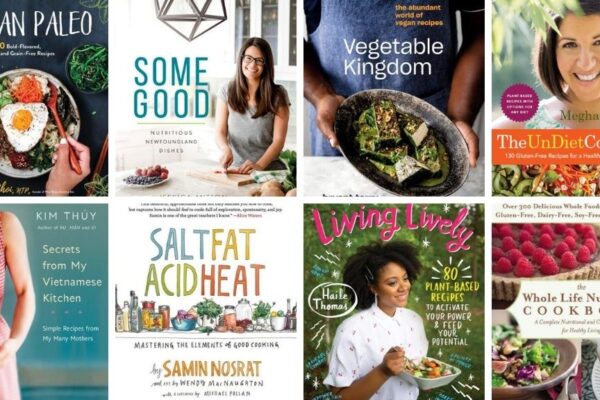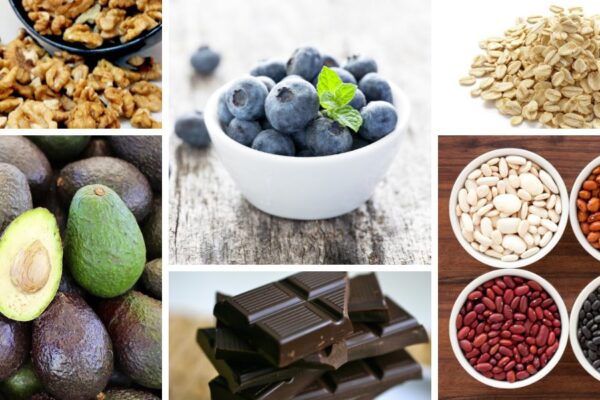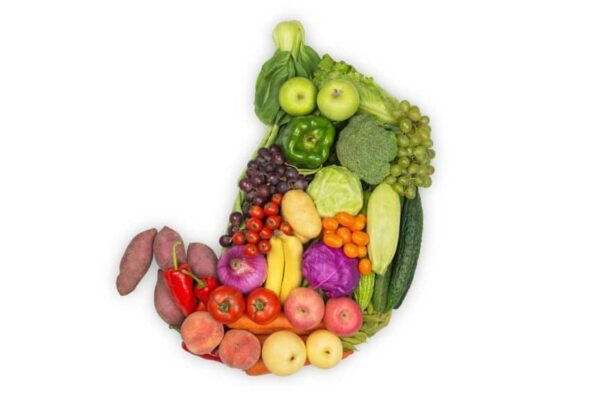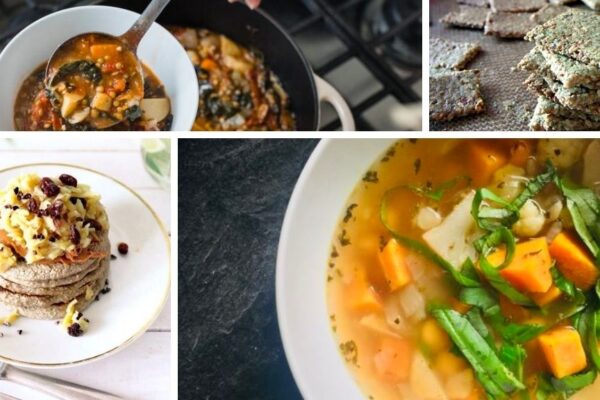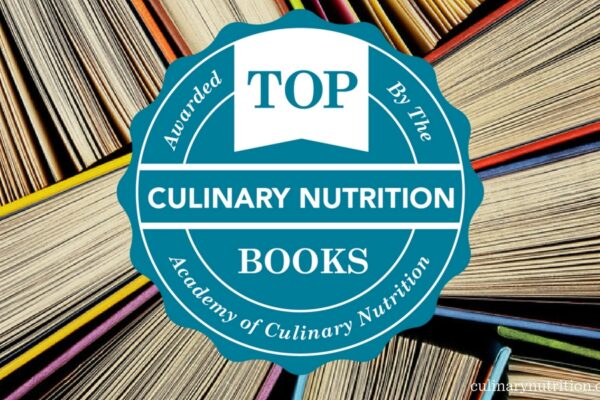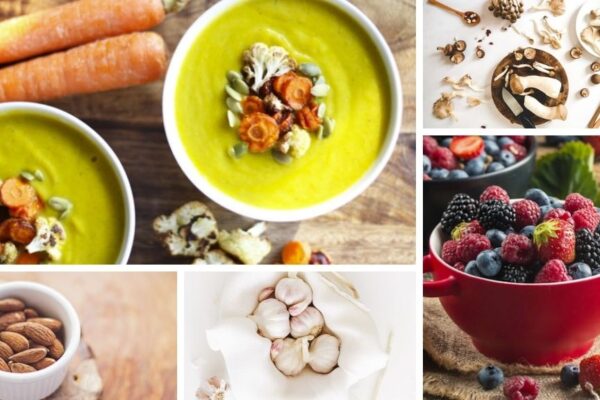15 Best Foods for Resilience
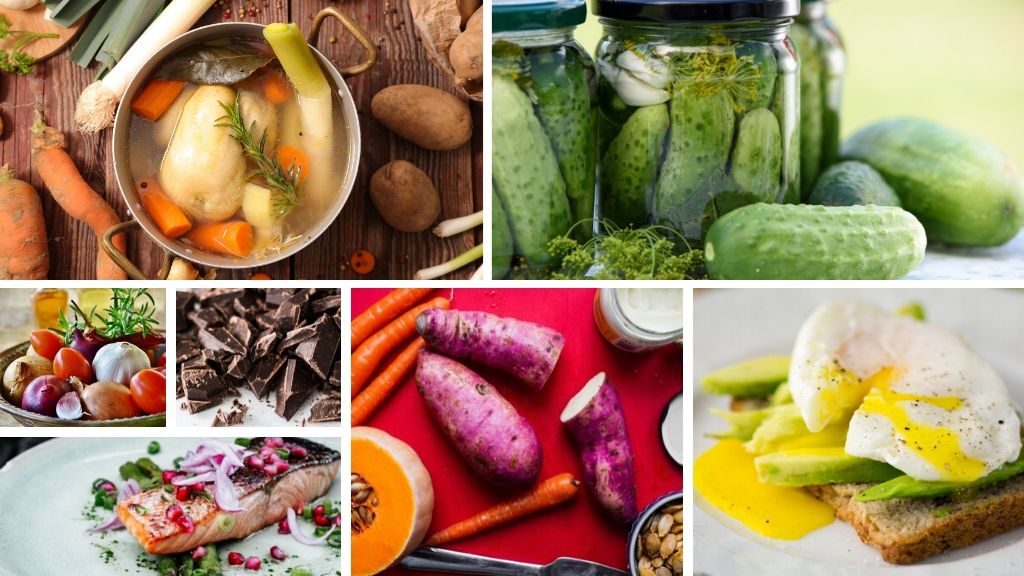
Life can throw an immense number of challenges at us, both big and small. If we are resilient, we have the ability to deal with those challenges quickly without long-term damage. Unfortunately, far too many of us face adversity when our health is already depleted. This can hamper our capacity to overcome these difficulties and affect our well-being. When we consume the best foods for resilience, we are better able to bounce back from events that may keep us down.
Think of resilience in terms of a health bank account. You want to accrue a decent amount of savings that you can draw upon in an emergency without going into great debt. There are many health habits that contribute to resilience, including stress management, exercise, sleep and more, but in this post we are focusing on the best foods for resilience and how a nutrient-rich diet can build up your health bank account.
Important Nutritional Considerations for Resilience
There are a few factors to keep in mind when eating for resilience.
Support The Immune System
Our immune systems are an amazing line of defence against illnesses that may strike us down, from the common cold to chronic conditions like autoimmune diseases. Try cooking with these flu-preventative foods and these simple immune-boosters. If you’re ready to learn how to make tinctures, try this incredibly potent fire cider recipe.
Reduce Inflammation
Inflammation is a chronic problem for many people. Stocking up on anti-inflammatory foods can help with acute injuries and long-term inflammatory conditions. You can grab your complete Anti-Inflammatory Diet and Lifestyle Guide, which includes a free downloadable shopping list.
Eat An Overall Nutrient-Rich Diet
You never know what nutrient you’re going to need! Eat a varied diet with the essential macronutrients (protein, fat, complex carbohydrates) and micronutrients (vitamins and minerals) for good health. We like to eat seasonally and locally – this assures we’ll get a variety of foods and nutrients, and we cook with the Clean 15 to limit our exposure to chemicals.
Fortify Your Brain and Nervous System
Reinforcing your nervous system benefits your mental health and reduces the risk of degenerative brain disorders. This allows you to process and eliminate mental and physical stress. Plus, remember that what happens in your brain affects your entire body! For example, there is a close link between the brain and the digestive tract, so it’s equally important to eat foods that support digestion as well as those foods that enhance your mood and mental outlook.
Balance Blood Sugar
Skipping meals or consuming sugary foods can send our blood sugar levels soaring and crashing. This leads to an imbalance of hormones – including stress hormones – that affect our ability to handle challenges. Focus on meals and snacks that contain complex carbohydrates, protein, fat, and fibre to keep blood sugar levels on track.
Stay Hydrated
Fluids are essential to our health. They help our digestive, joint, skin, liver and kidney function as well as move important nutrients throughout the body. Water is our favourite way to stay hydrated, but you can also opt for herbal teas, hot elixirs, cold elixirs, nut or seed milk, smoothies, infused water, or bone or vegetable broth. Don’t forget there are many fruits and vegetables that are hydrating, too.
Cook Food From Scratch As Much As Possible
Packaged and processed foods contain a multitude of ingredients that detract from our health bank, including refined sugars, gluten, dairy, rancid vegetable oils, artificial colours and flavours, preservatives, and more. Cooking food from scratch helps you to manage what’s in your meals and avoid the ingredients that damage our resilience.
If healthy eating seems intimidating, learn a few simple steps to get started with healthier cooking and start building a healthy pantry.
15 POWERFUL RESILIENCE-BUILDING Foods
Spinach
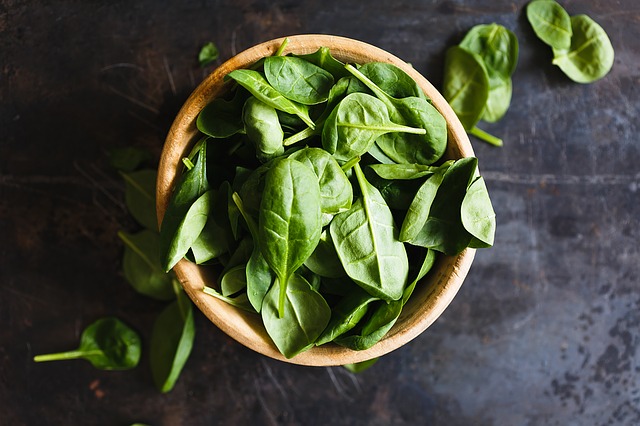
Dark leafy greens such as spinach contain a payload of nutrients that support our health. They’re a rich source of antioxidants that boost the immune system and reduce inflammation like vitamins A, C and E, an array of B vitamins that bolster energy levels and help us handle stress, and phytonutrients that have anti-cancer properties.
If you’re already good friends with spinach, branch out with our Guide to Dark Leafy Greens and How to Use Them – as every member of this power-packed veggie family has a similar nutrient profile.
Butternut Squash
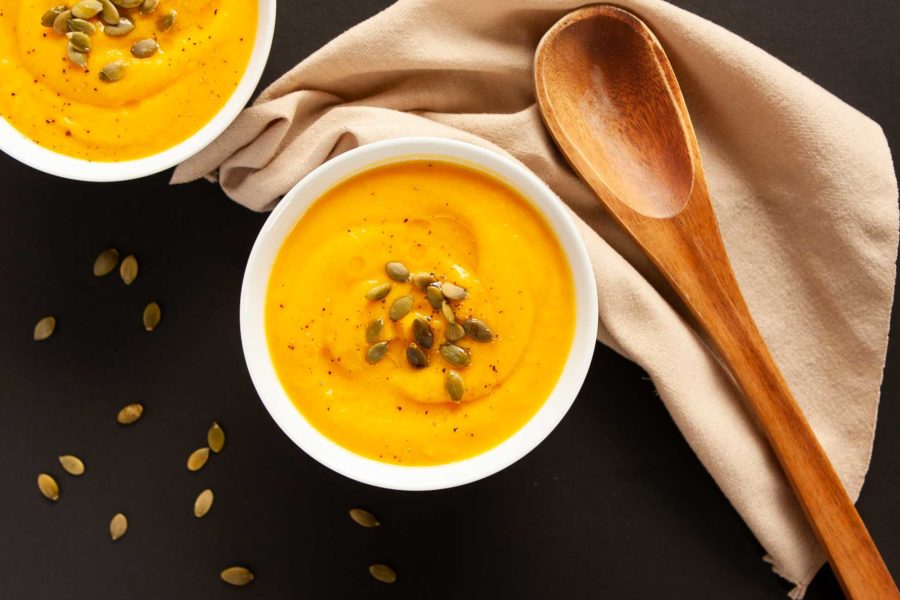
One of our favourite winter vegetables, butternut squash contains cucurbitacins, which halt the enzymes that lead to inflammation. They are also great sources of immune-supportive vitamins A and C. Learn more about how awesome they are in this Guide to Winter Squash and be sure to try this butternut squash soup recipe.
If the butternut variety isn’t your jam, any other winter squash will do the same job! Grab a bunch of recipe inspiration in these 20 Best Winter Squash Recipes.
Mushrooms
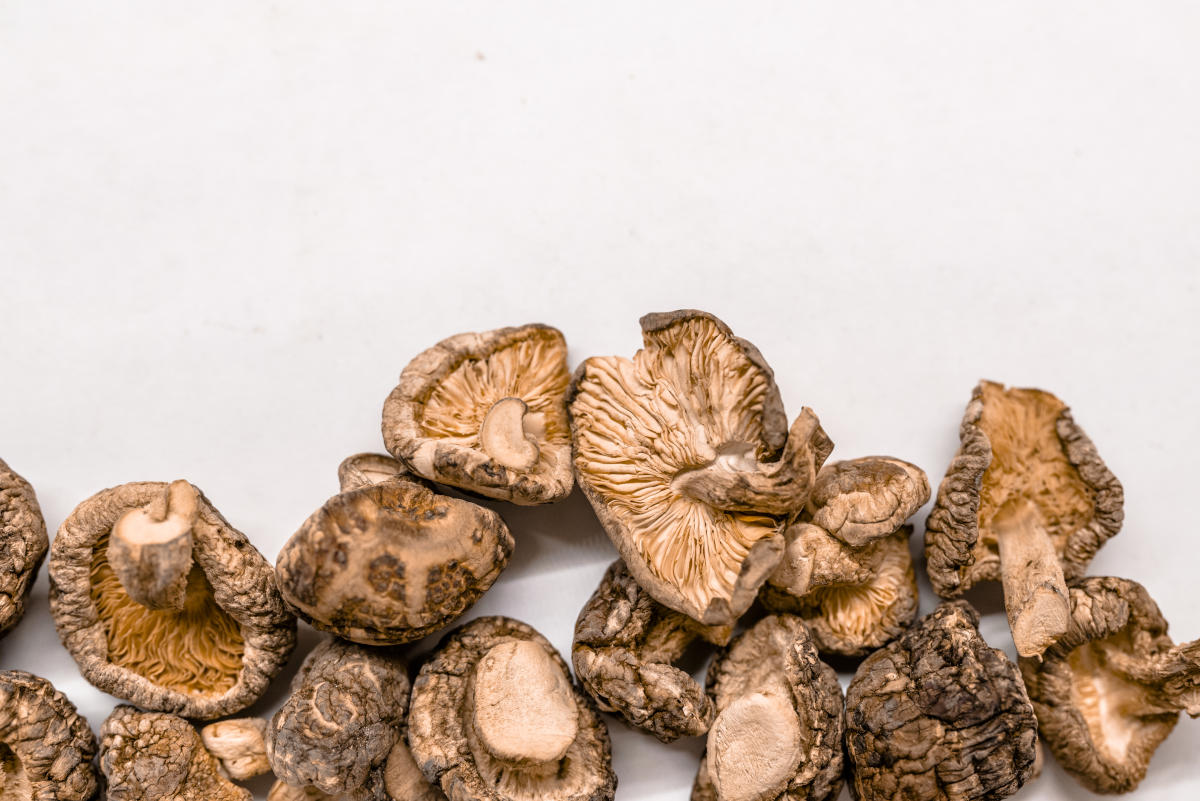
Medicinal and culinary mushrooms are some of the best foods for resilience for many reasons! They offer us a number of minerals and vitamins that support the nervous system and immunity, such as B vitamins and Vitamin D. They’ve been shown to have anti-cancer properties, plus they have unique immune-boosting and modulating polysaccharides called beta glucans that dial our immune system up or down as needed.
We like using shiitake and cremini mushrooms in cooking and chaga and reishi as culinary adaptogens in teas, elixirs, and tinctures. Learn more about mushrooms and how to use them in recipes in our downloadable Guide to Medicinal Mushrooms.
Salmon
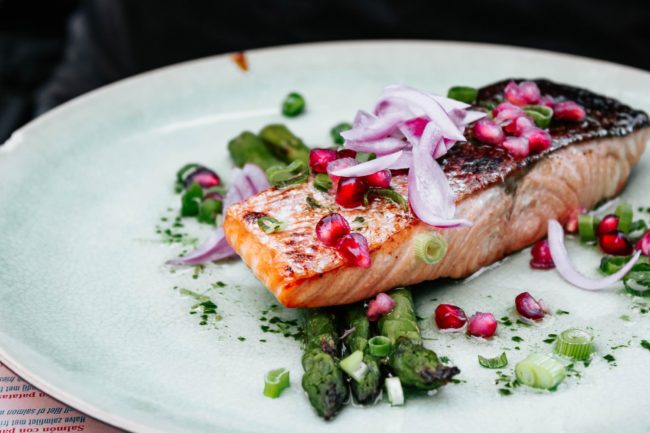
Salmon is rich in omega-3 fatty acids, which are highly anti-inflammatory. Omega-3s, particularly EPA and DHA, are crucial for brain and nervous system development and our mood. It also contains protein for gut healing and repair, as well as Vitamin D for good immune function and autoimmune disease prevention. If you’re trying to eat healthfully on a budget, canned sardines and anchovies are also a great choice.
Eggs
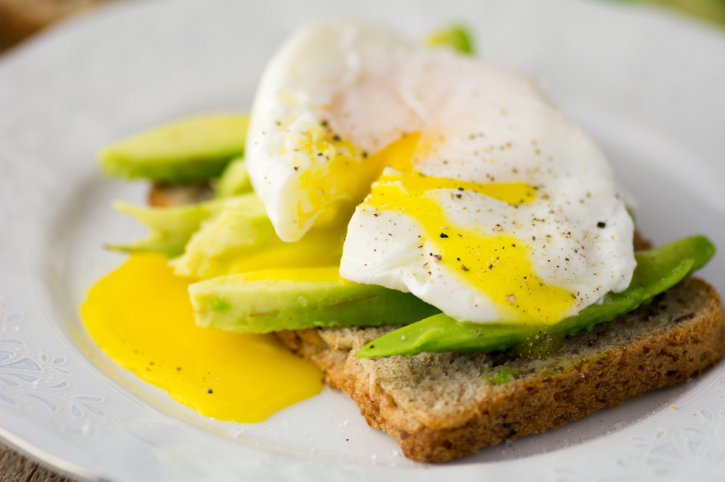
Eggs are an incredibly nutrient-dense source of protein, anti-inflammatory and blood sugar balancing omega-3 fats, and Vitamin D and Vitamin A for immunity, B vitamins for energy and sleep, as well as the antioxidant selenium. Since the brain is more vulnerable to oxidative damage, consuming antioxidant foods can help protect and preserve the brain. They also contain choline, a nutrient that supports the nervous system, improves mood, and helps produce neurotransmitters.
Broccoli
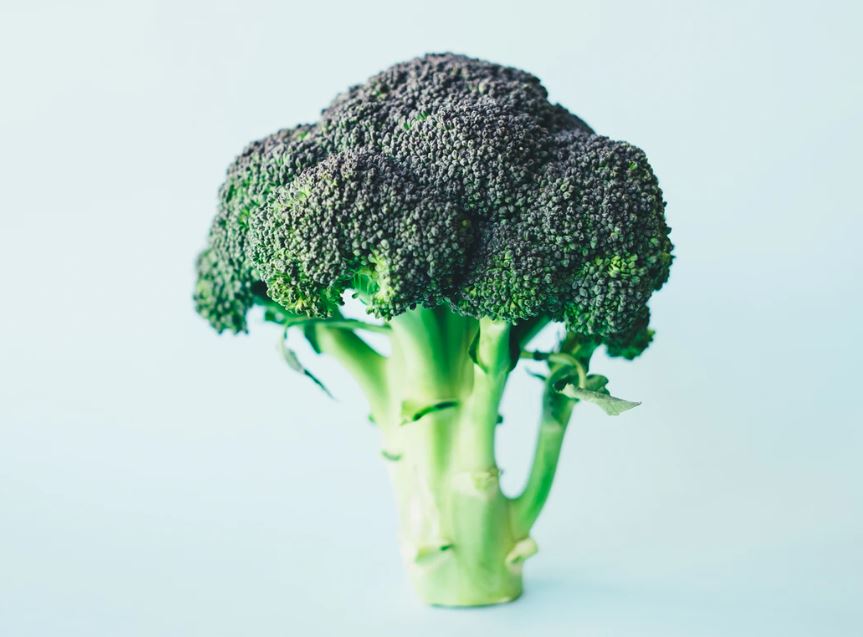
Broccoli is easy to find at most grocery stores and contains many compounds that aid resilience. It has multiple nutrients that bolster bone health, like calcium, magnesium, Vitamin D and Vitamin K. It also contains fibre for good digestion, as well as antioxidants such as vitamins C and E. As a cruciferous vegetable, broccoli contains anti-inflammatory compounds and also help us with detoxification.
Fermented Vegetables (Pickles or Sauerkraut)
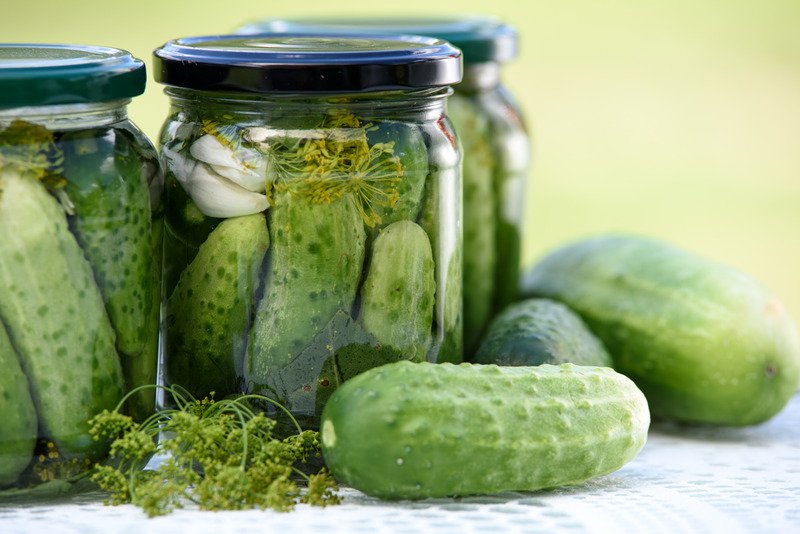
Fermented foods like pickles or sauerkraut are loaded with probiotics, which introduce favourable bacteria into the digestive tract and help to fortify the intestinal lining. As 70 percent of our immune system is found in gut tissue, fermented foods can help boost immunity. The fermentation process also increases the amount of nutrients and decreases phytic acid, a compound that inhibits our digestion.
Get our step-by-step guide to making pickles and learn to make your own easy sauerkraut. If you’d like to experiment with more fermented foods, you can also try fermenting your own kombucha!
Bone Broth
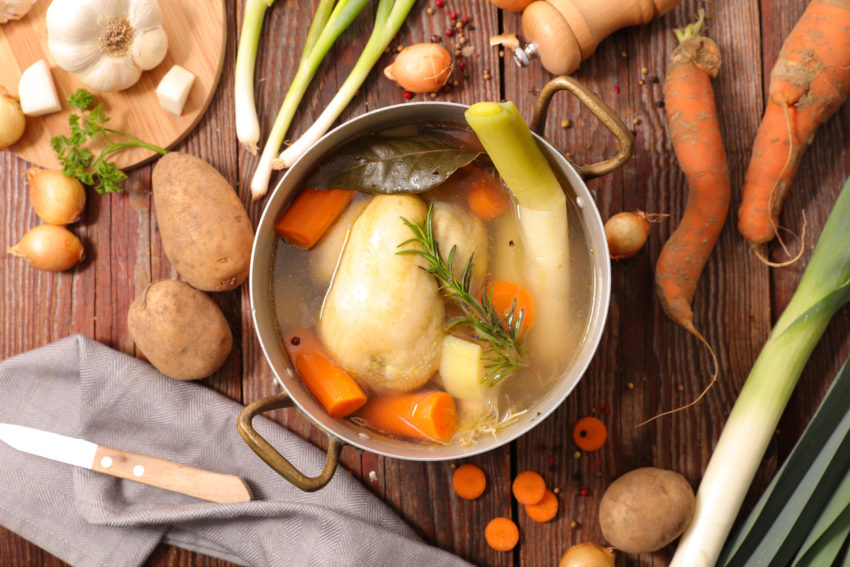
Meat-based broths are rich in protein for repairing tissues, boosting immunity, bolstering energy and hormone balance – and contain health-building fats that support cell membranes, joint health, and the brain. They’re also very simple to digest, hydrating, and rich in vitamins, minerals, antioxidants, and anti-inflammatory nutrients. Plus, it’s so easy to enhance broths with more nutrition by adding vegetables, herbs, spices, sea vegetables, medicinal mushrooms, or culinary adaptogens.
Get our full lowdown on broths and stocks, including a basic recipe, health benefits, best equipment, nutrition upgrades, and more.
Sweet Potato
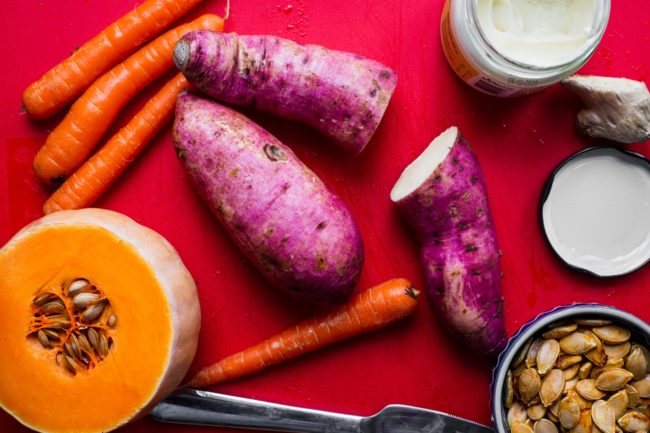
We absolutely adore this humble root vegetable because it has so many nutrients, including carotenoids that support eye health, Vitamin C for immunity, anti-inflammatory compounds, and a wealth of antioxidants like anthocyanins. Sweet potatoes help to support digestion, and their fibre content aids blood sugar levels too.
Discover more about the root vegetable family in our Guide to Root Vegetables, and be sure to try this roasted sweet potato salad.
Onions and Garlic
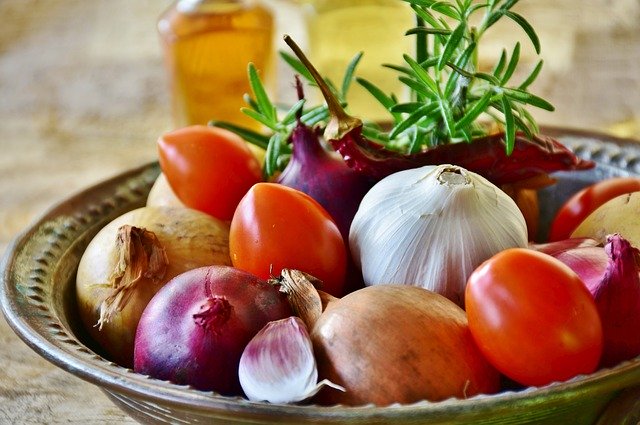
These aromatic, sulfur-containing vegetables are rich in anti-inflammatory, anti-viral, anti-bacterial and anti-fungal properties that help us reduce pain, bolster immunity, support heart health and inhibit carcinogens. They are great for fighting colds and flus and are very budget-friendly.
Onions and garlic are a staple in one-pot meals, broths and stocks, and soups, plus you can use them in immune-boosting tinctures like this popular fire cider recipe.
Dark Chocolate
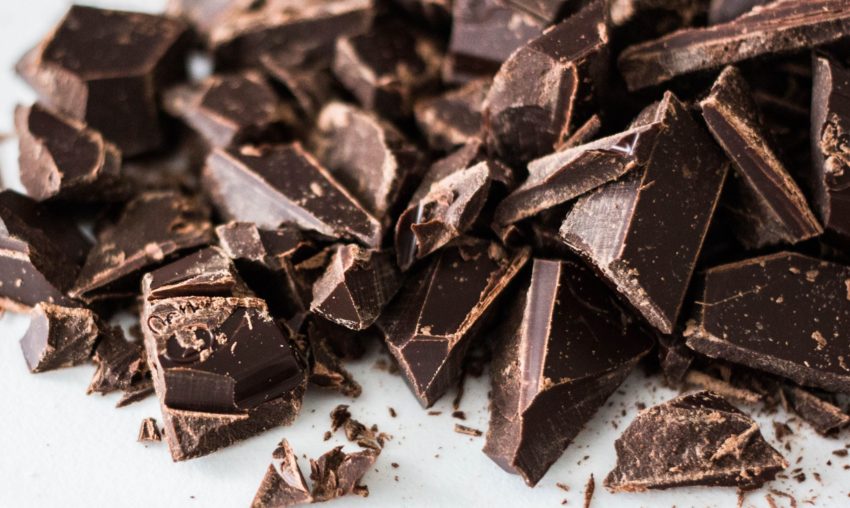
Chocolate can be an incredibly nutrient-rich food to add to your diet, depending on the type of chocolate you choose. Good quality dark chocolate is packed with antioxidants, bliss-inducing chemicals, magnesium for relaxation, bone health and heart health, and healthful fats that aid satiety, blood sugar balance, hormones, and vitamin and mineral absorption.
Grab our Culinary Nutrition Chocolate Guide, where you’ll learn more about the health benefits of chocolate and how to use each part of the cocoa bean, along with recipe inspiration. You’ve gotta make this hemp chocolate spread or try one of these amazing hot chocolate combinations!
Raspberries
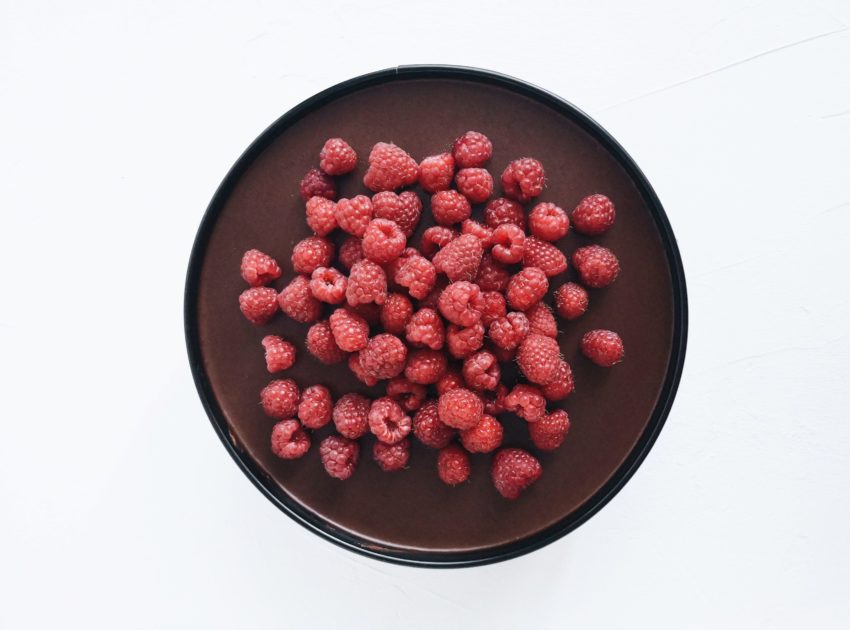
This member of the berry family has a wealth of antioxidants, such as Vitamin C, and is an outstanding source of fibre. Raspberries have been studied for their anti-cancer properties, as well as their role in mitigating obesity, diabetes, and cardiovascular disease. Use raspberries in smoothies, smoothie bowls, homemade popsicles, kombucha, and, of course, you can always eat them straight up.
If you don’t like raspberries, there are many other berry varieties you can add to your resilience eating. Learn more about the health benefits of all kinds of berries here.
Apples

We love apples because they are widely available, inexpensive, tasty, portable and last for awhile when stored properly. Apples are packed with Vitamin C and fibre, and they greatly benefit the cardiovascular system. Recent research shows that the polyphenols in apples help to support the beneficial bacteria in the colon and positively impact the gut microbiome, which is essential for digestive, immune and mental health.
Avocado
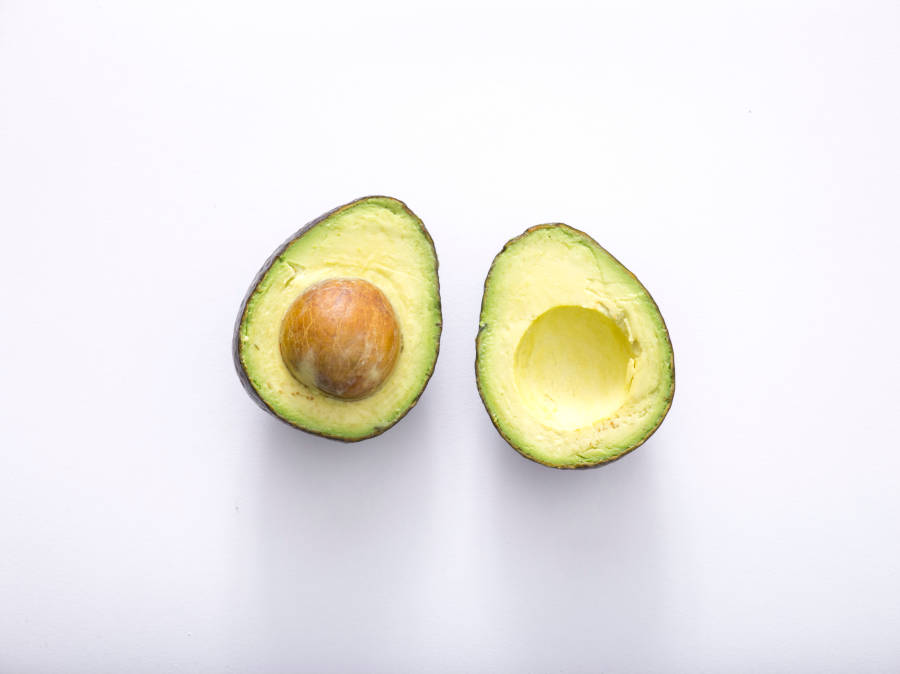
Avocados contain nourishing fats that help balance our blood sugar levels, mood and hormones, and support our nervous system function. They also have Vitamin B5, also called pantothenic acid, a stress-fighting B vitamin that helps us manage stress. Use avocado in classic ways like guacamole and avocado toast, or take advantage of the creamy texture and incorporate avocados into chocolate pudding or dairy-free ice cream.
Ghee
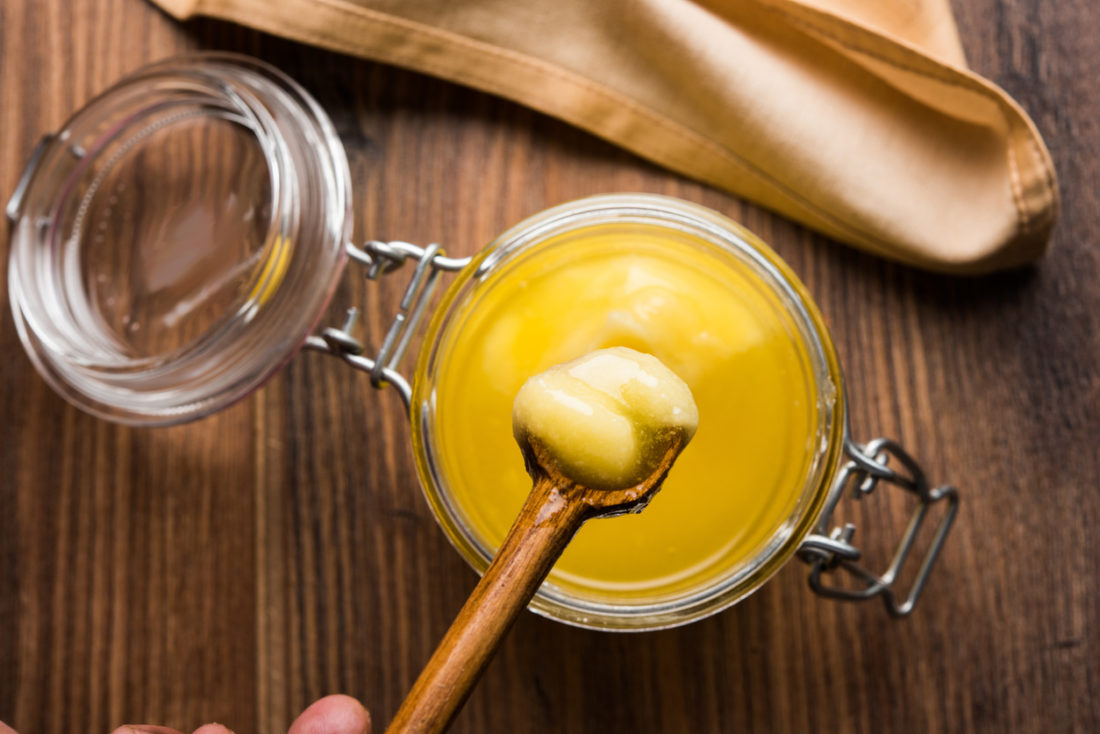
We are huge fans of ghee, which is a traditional food used in Ayurvedic medicine and Indian cooking. It’s full of beneficial fats that can reduce the risk of cardiovascular disease, support digestion and help in maintaining a healthy weight. Ghee is very easy to make at home (and it’s much less expensive!) – we have a full tutorial on how to make ghee. Then, once your ghee is ready to go, there are at least 20 delicious ways to use it.
There are multiple ways to build your health and eating these best foods for resilience is a great place to start! For inspiration, try this easy and delicious smoothie recipe.
Print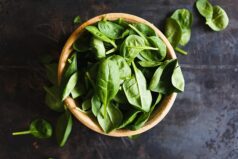
Resilience-Building Smoothie
- Total Time: 5 mins
- Yield: 2 servings 1x
Ingredients
- 2 cups water or nut/seed milk
- 2 lightly packed cups spinach
- 1 1/2 cups fresh or frozen raspberries
- 1 avocado, pitted and flesh scooped out
- 2 Tbsp cacao powder
- 2 Tbsp hemp seeds, or 2 Tbsp nut or seed butter of choice
- 1–2 dates to sweeten, optional
- 1 dropper of chaga or reishi tincture, optional
Instructions
- Add all ingredients to the blender in the order listed. Blend until smooth, scraping down the sides if necessary to ensure everything is incorporated.
- If the smoothie is too thick, add more water or nut milk 1 Tbsp at a time until you reach the consistency you like.
- Prep Time: 5 mins
- Category: Snack, Breakfast
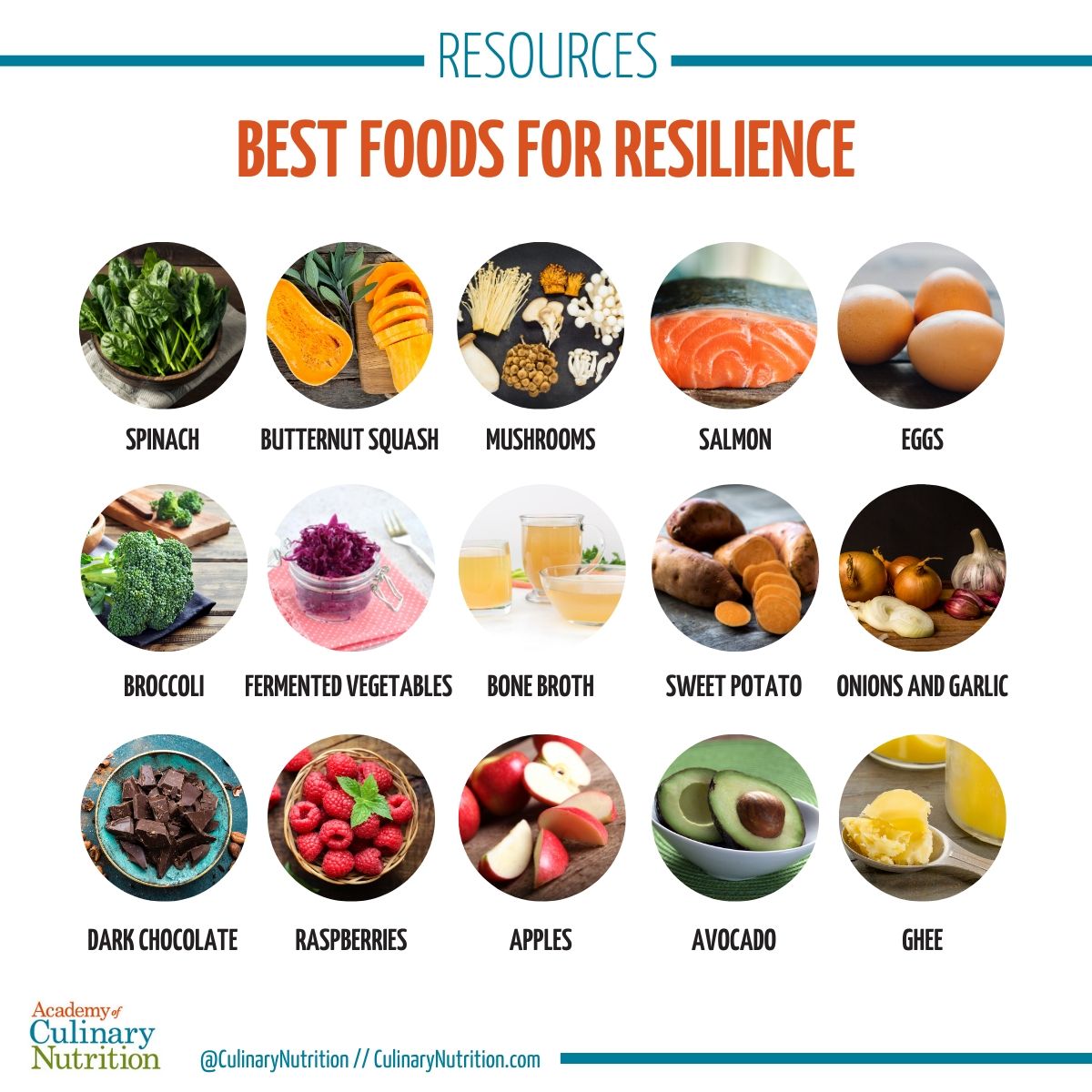
Free Resource Library
Enjoy more than 40 downloadable guides, recipes, and resources.















